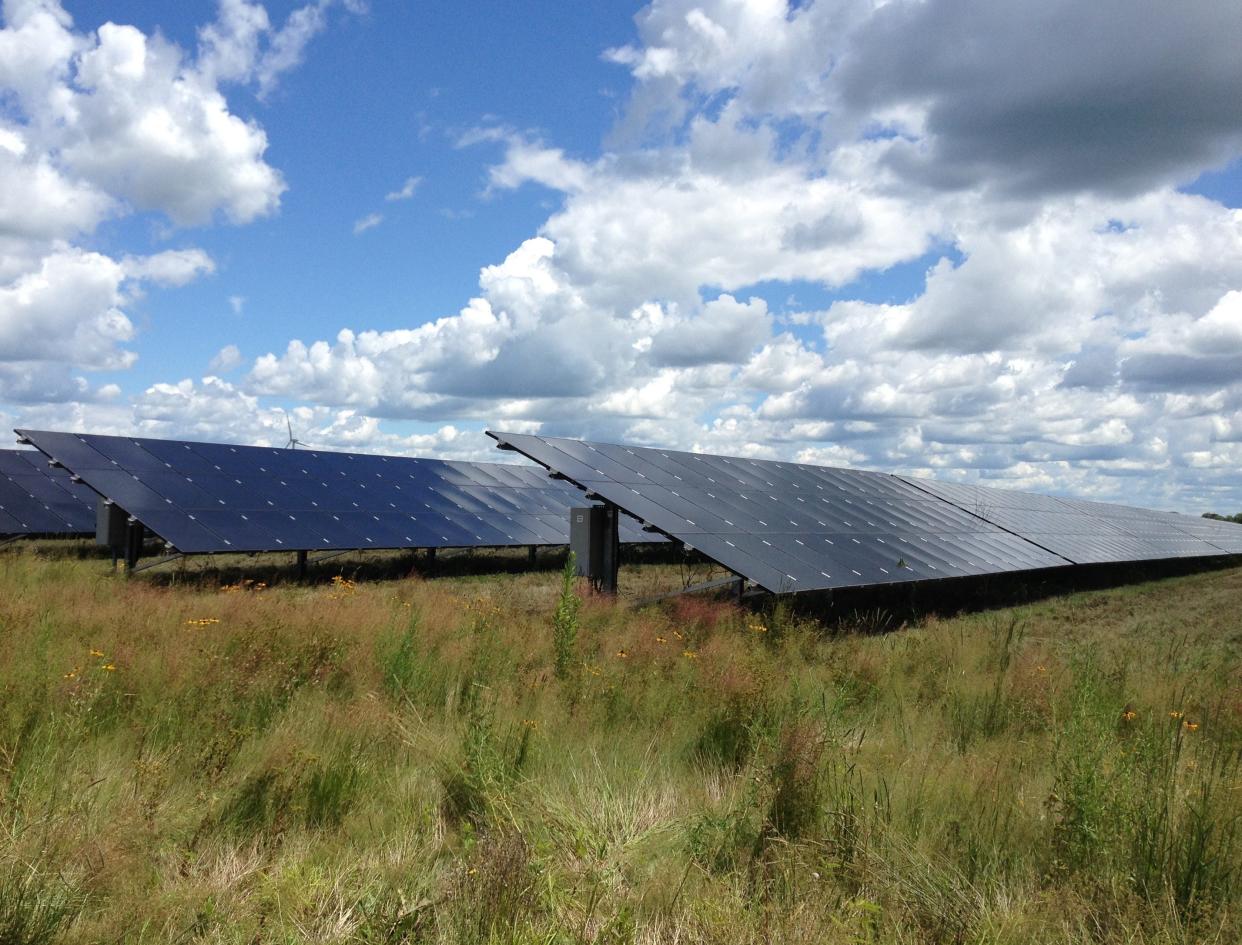Delaware County Council to review abatements with solar developers

An earlier version of this story stated that council member William Hughes was an attorney. Mr. Hughes is actually a retired attorney.
MUNCIE, Ind. − Delaware County Council unanimously agreed last week to reexamine tax abatement it granted to Invenergy, a global developer of renewable energy, for the still planned Meadow Forge solar project in Washington Township.
The council, aware county commissioners are working on finishing a solar zoning ordinance and that a nearly two-year moratorium on developing solar fields in the county will expire after Dec. 31, took action to determine where it stands with proposed solar-related tax abatements. In addition to Meadow Forge, a solar development by a different company, Hawthorn Solar, LLC, a subsidiary of National Renewable Energy Corp. based in Charlotte, N.C., also entered into abatement agreements with the county. Smaller than Meadow Forge, that project would have placed $88 million worth of equipment on roughly 355 acres south of Albany.
Council Member Ryan Webb brought the solar issue forward during the meeting and said he was wrong when he voted to support the Invenergy abatement after asking company representives if they had encountered opposition to the solar farm. He was told there was none in October 2021. By January 2022 protests had led to a moratorium on solar projects.
Opponents of Meadow Forge and proponents of solar energy, along with Kristina Kern Wheeler, an Indianapolis attorney representing Ivenergy, also attended the regularly scheduled November council meeting.
Wheeler told the council, as she also told the county commissioners at their meeting Monday, that that she doesn't believe the county has a vehicle by which it can back out of its 2021 agreements with the company. Those agreements include a the tax abatement agreement with the council.
She noted that to this point Invenergy had spent about $5 million on Meadow Forge including payments to landowners who have leases with the company to host the solar fields.
Wheeler reminded council members that Invenergy had also agreed to pay $1.6 million to the county, not as a tax but as a payment which the county officials can spent however council members choose. She told The Star Press that that payment does not start until the solar field exists.
Regarding Wheeler's assertion that the council can't legally back out of the agreements, Council member William Hughes, who chaired the meeting in the absence of Council President Jessica Piper, disagreed. He told The Star Press that legislative bodies, like the county council, have the ability to recind or repeal a prior action. Hughes, who is a retired attorney, said that is how he would look the tax abatement with Invenergy.
However, Webb told the Star Press the possibility of a lawsuit has created apprehension.
"There are some council members who are concerned with the possibility of litigation against Delaware County by the solar farm companies if the county council votes to rescind the tax abatements," he said. "I am getting increasingly frustrated at the frequency with which the council folds our hands when we are in the right, simply because we are worried about potential litigation. This has happened several times this year already."
Webb said however that he worries about legal action by solar opponents and Delaware County residents because the council declared much of rural Delaware County as an Economic Revitalization Area.
The designation identifies an area as being in such poor economic condition that it is "undesireable for, or impossible of, normal development and occupancy," according to the Indiana Department of local Government Finance. The ERA declaration is necessary to provide tax abatement to the solar developers.
"Personally, I am more concerned about possible litigation from the residents of northern Delaware County who might sue the council or Delaware County for inappropriately declaring an ERA in an area that wasn't eligible, simply to to qualify for a tax abatement for these solar farms," Webb said.
Meanwhile, solar supporters continued to press for a changes in the solar ordiance to make it more welcoming of solar.
The ordinance is going back to the Delaware County - Muncie Plan Commission to consider a reduction in available farm acreage for solar projects. That change was proposed Monday by county commissioners.
Linda Hanson, speaking as a representative of the Delaware County League of Women Voters, told council members that part of the existing ordinace states the county is to support renewable energy in the county. But the latest iteration of the ordinance placed setbacks of the solar panels 500 feet from the property lines of nonparticipating land owners.
"That is a regrettable amendment," she said.
It is significantly more distant than the 50-feet setbacks suggested by the General Assembly. Hanson suggested that the solar developers would not be able to work with such restrictive setbacks, causing the county to lose millions of dollars in solar energy development.
She said such regulation was counter to being supportive of renewable energy.
Council members all voted to have the tax abatement committee of the council review the abatements and contact representatives of the developers in December to determine the status of the projects. The full council will then likely conduct a special meeting in January to discuss the abatements for solar farms.
David Penticuff iws a report5er with The Star Press. He can be contacted at dpenticuff@gannett.com.
This article originally appeared on Muncie Star Press: Delaware County Council to review abatements with solar developers

